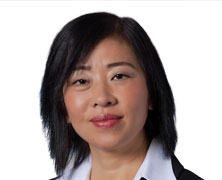Although much has been said about the under-representation of women in professional scientific fields in the United States, for me there was never a question that I would work in the sciences. I consider myself very fortunate, though. From the time I was a young girl, studying in China, my love for science was encouraged by my teachers. That was especially true during my high school years, a time in which many Chinese students decide which direction their studies will take.
For all students, no matter where in the world they live, high school should be a time of discovery—a time to learn what they’re good at and where their interests lie. If we want to do a better job attracting women to scientific fields, I think we need to focus not on the industry or on those making hiring decisions. Instead, it’s important to go back to the formative high school years.
I believe that just as many girls as boys are interested in science. But unless that interest is nurtured, it’s not going to flourish. High school science teachers have an incredible responsibility to inspire young teenagers’ curiosity and interest in science. Their teaching styles, as well as their attitudes, can be the turning point for any student, but especially for girls.
The teachers I had in high school not only encouraged my passion for science, they helped point me in the right direction. After completing my high school and undergraduate studies in China, I came to the U.S. for my post-graduate education. Having had the unique personal experience of studying in such very different countries and cultures, I can tell you this about the U.S.—it is the capital of innovation and novel ideas.
When I moved to this country, I learned how to use my scientific knowledge in order to solve problems. I found a practical application for my love of organic chemistry. I had professors who gave me the space to do things on my own and explore entirely new ways of solving difficult problems. My interest in life sciences led me to the pharmaceutical industry, where advanced chemistry and biology are used to create medicines that help people. I had found my calling.
For the U.S. to continue to be a true leader in innovation, it’s important to understand something I learned from my experience—education is the seed that generates innovative thinking. We need to give science, and young girls, the respect they deserve. If we invest in today’s female high school students, and encourage and support their scientific pursuits, I truly believe we will all be better off for it.







